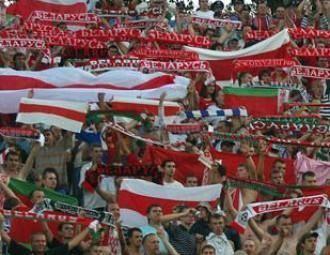Siarhei Nikaliuk: National mobilization in Russia caused national mobilization in Belarus

Sociologists note the appearance of pro-Belarusan moods in the society: the desire to have a union with Russia has declined, but no bigger desire to take European direction has appeared.
At the beginning of June Independent Institute of Socio-Economic and Political Studies (IISEPS) issued the results of the public opinion research conducted in June.
With the decline in the financial index in our country pro-European moods are also in decline, even though pro-Russian sentiments didn’t get stronger. The experts started talking about a new phenomenon – a “pro-Belarusan direction”.
Siarhei Nikaliuk, an expert from Independent Institute of Socio-Economic and Political Studies (IISEPS), commented upon the results of the June research conducted by IISEPS to “EuroBelarus” Information Service.
- In spring the economic well-being of Belarusans was still in decline, whereas Lukashenka’s approval rating was continually growing: if in March only 45,9 per cent of Belarusans trusted him, in June this indicator reached 49,6 per cent. What is the reason for this paradox?
- This is a local event, which is reflecting change in what we usually call “public opinion”. Two factors influenced the shift.
First is an economic one. The population is distressed by the growing prices on pork and poultry; so it’s no coincidence that about 80 per cent of the respondents mention price growth and inflation among the main factors. Belarus is an absolute leader in inflation rate among post-Soviet countries and at the European area on the whole, and this trend is unlikely to change.
Likewise March, political factor, i.e. the picture formed by the Russian media, is also influencing the situation. But if in March the political factor was much stronger than the economic one, now it gives way to pure economy. Besides, more Belarusans started admitting that a crisis is reigning in Belarus.
For now it doesn’t look like the economic factor will be reduced in the near perspective.
- Third of the respondents believe that “our people can work no worth than in the West, and it is the state that is to blame”. Why do Belarusans trust Lukashenka then? It is him who is the chief and the only Belarusan leader.
- Some people trust Lukashenka, some people don’t – I’m always cautious about making generalizations. Even though Lukashenka’s approval rate is high, still it doesn’t reach 50 per cent, and his electoral rate doesn’t even reach 40 per cent.
- The number of Belarusans who find “the change of the current situation more important” is growing each year: from 41,2 per cent in December 2010 to 52,1 per cent in June 2014. If these figures reflect expectations, not the intentions of Belarusans, what are they waiting for?
- These figures reflect general dissatisfaction. There are people who don’t like authorities in general. Talks about changes came with the prices’ growth. A large number of dissatisfied people don’t necessarily mean that they are about to organize a street demonstration.
- Ukrainian events were a reason for worsening of attitude to Europe; however, the number of those who support Russia didn’t grow either. So where are all those who got disappointed in the European path of development?
- In March we took a pure Russian-oriented attitude. But unfortunately, we are unable to look at the events in their dynamics, as we are only conducting research once in three months. We conducted our research from March 1 to March 15, whereas pro-Russian sentiments got to their highest point at the beginning of April. We observed the start of growth in pro-Russian sentiments, but in three months no sign of them was left.
But we noticed one effect that we didn’t expect. All this time national mobilization is under way in Russia. And as far as in April Lukashenka stated that we are neither pro-Russian nor pro-Polish; we are pro-Belarusan. Thus, national mobilization in Russia caused national mobilization in Belarus. The desire to have a union with Russia has declined, but no bigger desire to take European direction has appeared. The society only had one option, and that is to choose between “pro-Russian/pro-Belarusan” alternatives, and that caused the national agitation.
Neither Russia nor Belarus has the notion of public opinion in its general sense.
-
03.01
-
07.10
-
22.09
-
17.08
-
12.08
-
30.09



























